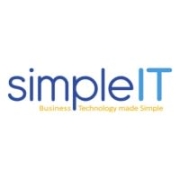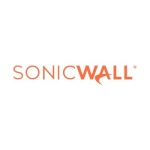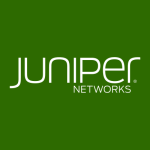What is our primary use case?
My company uses Netgate pfSense firewall routers for some clients, but I choose the device based on their needs. For locations like restaurants that require constant internet, I use a different device with cellular failover built-in. The cost-effective Netgate pfSense is a good option in simpler locations like doctors' offices. I can leverage Netgate's ability to handle multiple ISPs for clients with large internet demands. Ultimately, the choice depends on the client's budget and specific requirements.
In my role, I decide what our clients should implement for their network security. I want to create a secure environment by separating the business network from the Wi-Fi and phone networks. To achieve this separation, pfSense uses different subnets to effectively block any incoming traffic attempting unauthorized access to the network.
How has it helped my organization?
pfSense is highly configurable, offering flexibility to tailor its features and functionality to each client's network needs.
pfSense offers a wide range of plugins and add-ons, making initial configuration straightforward. However, since I primarily rely on endpoint security products installed on clients' workstations for their overall protection, my pfSense setup focuses on basic functionality. This includes configuring the firewall for my in-house network and leveraging its ability to handle multiple WAN connections. Ultimately, pfSense's affordability and ease of use make it a great choice for me as a secure and customizable router/firewall solution.
Network segmentation offers the biggest benefit for my clients. By creating separate Wi-Fi, phone systems, and business network segments, I can isolate any security breaches and prevent them from spreading throughout the entire network. As the decision-maker, I prioritize client security without needing them to understand the technical details. My focus is ensuring their networks are secure.
I have never had any downtime using pfSense Plus.
What is most valuable?
The most valuable features of pfSense are its ability to segment networks, create different subnets, create different VLANs, and use the VPN, as well as its affordability.
What needs improvement?
pfSense lacks a centralized web dashboard for viewing all my clients' pfSense dashboards. A single pane of glass for both web access and management would be a game-changer. This missing interface is my biggest frustration with pfSense, and improvement is sorely needed. I have clients all over the United States and would deploy many more pfSense firewalls if it had a centralized web dashboard.
For how long have I used the solution?
I started installing Netgate pfSense for clients almost three years ago.
What do I think about the stability of the solution?
I would rate the stability of Netgate pfSense ten out of ten.
What do I think about the scalability of the solution?
I would rate the scalability of Netgate pfSense ten out of ten.
Which solution did I use previously and why did I switch?
We've worked with almost every firewall: SonicWall, Cradlepoint, Ubiquiti, Fortinet, and UniFi devices. You get into the licensing of some of those with SonicWall and Fortinet, and it's just not the product that I like to sell to my clients. I'm always client-friendly. I want to find the most affordable product for them that does the best job. NetGate pfSense is the right one for some but not for others.
How was the initial setup?
The deployment is simple. We preconfigure the device in the shop and then take it out and hook it up in less than one hour.
We have three people total who deploy the firewalls, including myself.
What was our ROI?
Netgate pfSense is a set-and-forget product other than deploying and periodically updating the firmware. pfSense has been solid for me.
What's my experience with pricing, setup cost, and licensing?
Unlike many firewalls that require annual licensing fees, making them expensive for small businesses, pfSense is an affordable option.
What other advice do I have?
I would rate Netgate pfSense seven out of ten. The only area of improvement is the web dashboard, which is currently lacking in pfSense.
I use other products to control data security. Most of my clients don't have an in-house server. I work with small businesses, and that's why the Netgate pfSense device works well. For my larger clients, we go to the cloud for data storage and data security with redundancy. So, I don't use pfSense for data security at all.
pfSense is a good value for some clients; it's client-specific. It depends upon other things we are deploying there, such as what kind of Wi-Fi network we use. If we are adding a VoIP phone system. It just depends on what the client's needs are, but It is the right device for the right client.
A lot of our clients are small businesses. I've got one fairly large business. It is a restaurant group nationwide with 700 employees, but its main office has maybe 30 to 50 employees. So, that's probably my largest deployment of the Netgate device.
The only maintenance required for the pfSense firewalls is applying the occasional firmware updates.
Some MSPs are more focused on making money. I'm not. I'm focused on the right fit for the client, and the money takes care of itself. pfSense is a great device. I'm not focused on what will make me money. I'm focused on what is best for the client. In many decisions, the Netgate pfSense is the right decision for that client.
Which deployment model are you using for this solution?
On-premises
Disclosure: PeerSpot contacted the reviewer to collect the review and to validate authenticity. The reviewer was referred by the vendor, but the review is not subject to editing or approval by the vendor. The reviewer's company has a business relationship with this vendor other than being a customer: MSP















